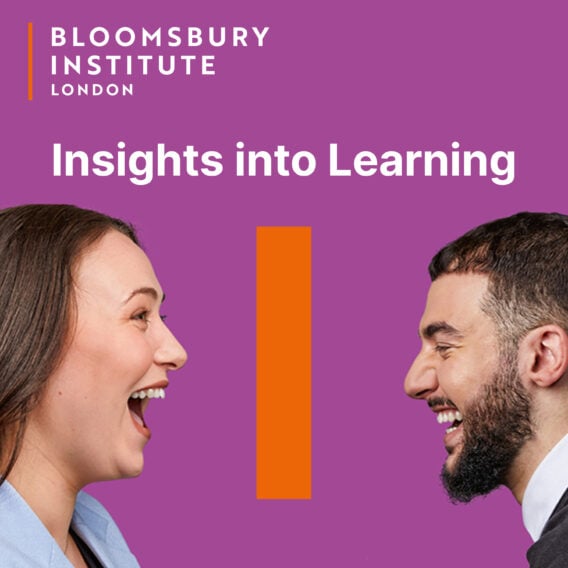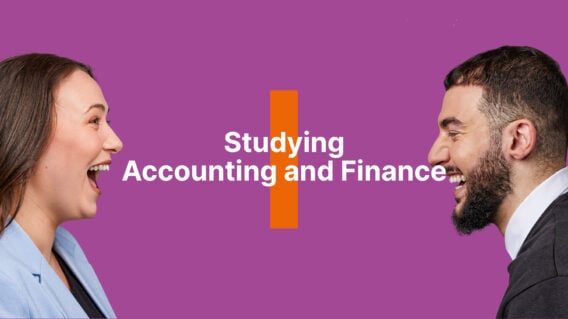Develop the technical, quantitative, and analytical skills needed to pursue a career in finance and wealth management professions.
Apply now to start in October 2025


Duration
1 year
Study mode
Full-time, Lectures, seminars and workshops 3 days per week
Start date
February, June, or October
Awarding Body
Wrexham University
Fees
Home: £12,000
International: £16,500
Location
Taught at our Central London campus
UCAS Institution code
L73
Entry Requirements
A degree or equivalent qualification, in accounting, finance, banking, economics, engineering, mathematics, statistics, sciences or any business-related subject with quantitative skills.
Course Modules
The following three, 30-credit modules, along with the dissertation module (60 credits), are mandatory.
This module provides the tools for you to be able to confidently manage your own wealth, as well as that of others. Whether you’re interested in becoming a financial advisor or want to take control of your own finances, this module covers the theoretical and practical aspects of portfolio management, from formulating an investment policy statement to portfolio construction.
You will explore the ins and outs of portfolio management, from developing an investment policy statement to constructing a portfolio that meets your clients’ needs. We’ll examine the regulatory environment, uncovering key financial regulatory regimes and the wealth management process, as well as teaching you how to assess clients’ needs and manage relationships.
Wealth management products and services, client risk profiles, tax management, and financial planning are also covered in this module. You’ll gain a comprehensive understanding of expected utility, dividend policy, growth, and the valuation of shares, building a strong foundation in portfolio theory and capital market assumptions.
Assessment
| In-class test | 40% |
| Examination | 60% |
This module is designed to develop students’ understanding of investment theory and practice. Covering the investment environment, portfolio and capital market theories, the module aims to enable students to understand and apply modern econometric techniques, emphasising financial econometrics and focusing on statistical models, financial econometrics and understanding data.
On successful completion of this module, students will demonstrate a good understanding of the investment environment; have a deep insight into the techniques used in investment analysis and valuation, and how they can be applied in real-world situations; and be able to interpret and make investment decisions based upon an informed and critical approach. Students will also be conversant with the empirical analysis of financial data, and ARCH and GARCH models as well as be able to use statistical software for econometric analysis.
Assessment
| Examination | 40% |
| Portfolio | 60% |
Finance managers require skills in leadership and management, project management, investment, financing, and dividend policy in order to make informed decisions. This module offers students the background knowledge required in order to understand firms’ financial management, long-term investment, and working capital management, which will help students to understand financial decision-making in enterprises.
This module will enable students to appreciate types of leadership and management styles and their impact on the performance and relationships in organisations. They will also learn concepts and phases of project management, project management techniques and management and leadership of projects. Students will also be guided through how they can apply corporate financial theory, project management techniques and leadership and management styles in real-life scenarios encountered by entrepreneurs and decision-makers in the corporate world.
On the successful completion of this module, students should be able to demonstrate a good understanding of capital budgeting techniques, sources of short and long-term finance and dividend policy that assist public companies in achieving shareholder wealth maximisation objectives. They should also understand the impact of leadership and management styles on firm performance and the project management techniques to lead and manage projects successfully.
Assessment
| Individual portfolio | 50% |
| Examination | 50% |
Your MSc dissertation is an independent piece of research. You will be graded on your ability to identify a topic relevant to the programme, design and execute research and present it as a dissertation. The core integrative element of the MSc Finance and Wealth Management programme, your dissertation is the final stage of the master’s degree and provides an opportunity to demonstrate that you have gained the necessary knowledge, understanding, conceptual awareness and skills required to organise and conduct academic research.
Assessment
| Research proposal | 20% |
| Dissertation | 80% |
You will choose one of the following two modules that are worth 30 credits.
This module enables students to understand and apply strategic financing, investment, and risk management decisions within a global context. The module covers the financial management dimensions of leading a multinational enterprise (MNE). The MNE as an organisation poses unique demands on business leaders, who are confronted with a multitude of challenges. The increased importance of the global integration of money and capital markets has created expanded opportunities for investors and organisations alike. In normal life, risk is usually regarded as something that should be avoided entirely, however, in the investment world, risk and performance are inseparable. Understanding risk and how to manage it is one of the important skills in the financial world. Volatile exchange rates have not only increased risk, but they have also created unique opportunities for both investors and firms to profit given a proper understanding of exchange rate risk management.
On the successful completion of this module students will possess a demonstrably good understanding of the international financial system, the evolving globalisation of the world economy and the strategies firms can employ to react to these changes, including hedging techniques. Students should also understand financial derivatives in an integrated manner, in their application to risk management.
Assessment
| Group project | 50% |
| Examination | 50% |
You’ll take a closer look at money, monetary policy and financial markets in the globalised world in this module, offering an insight into the techniques used to decide monetary policy and how they can be applied in real-world situations. A sound knowledge in these essential areas is crucially important for finance professionals who have to grapple with the effects of monetary policy by central banks and occasional financial crises.
Successful completion of this module will enable you to confidently evaluate the impact of monetary policy on businesses, households and other economic agents. You will also develop a deeper analysis of the money creation process, general equilibrium theory, inflation, portfolio theory, monetary policy objectives and instruments, interest rates, central bank independence, and many other topics related to monetary policy. In addition, the content in this module should complement the other modules in the MSc programme to ensure students have the necessary knowledge, understanding and application to work as competent practitioners in the financial industry.
Assessment
| Group project | 50% |
| Examination | 50% |
We use oral assessments, presentations, simulations, group, and individual, projects in addition to traditional assessment methods (examinations and coursework) so that you can explore and express your abilities in different ways. Assessments are not just a way of assessing whether something has been learned, but an opportunity to develop skills that will equip you in your future life and career.

Our Personal Tutoring (PT) scheme provides additional guidance and support for postgraduate students. Students have the opportunity to regularly meet with their peers and staff members in a less formal atmosphere than in the classroom. PT includes a combination of group and one-to-one sessions in which students discuss their course, and their experiences at Bloomsbury Institute, raise issues, ask questions and receive pastoral support.

An MSc Finance and Wealth Management degree can provide an array of employment opportunities in various sectors such as accounting, banking, investment management, insurance, and consulting.
Our Careers Hub is also here to help students launch their careers and take part in paid and voluntary positions.
- At least a second-class honours degree in either Accounting, Finance, Banking, Economics, Engineering, Mathematics or another Business-related subject with quantitative skills.
- You may also be required to pass an academic interview.

How the application process works
Complete the application form to let us know which course you would like to study and your existing qualifications.
Apply for Student Finance as soon as you have submitted your application to avoid delays.
You will be offered a place if you meet the entry requirements, or, invited to an Admissions Assessment.
International applicants are issued a CAS or may take a Pre-CAS Interview in order to gain a Student visa.
Welcome to Bloomsbury Institute! Enrolment and Induction take place the week before your studies begin.

We pride ourselves on supporting each and every student on an individual basis. Disabilities, long-term medical conditions, or specific learning difficulties are never barriers to success at Bloomsbury Institute.

Our Student Guild is here to support you, enhance your experience and represent your views. The Guild is student-led so get involved and help improve the Bloomsbury experience for you and fellow students.

Don’t let the cost of travel prevent you from success in your studies. Travel Bursaries (covering Transport for London’s Zones 1 – 6) are available to all students funded through the Student Loans Company.
Home student fees apply to students who do not require a Student Visa to study in the UK (e.g. UK and Irish citizens; EU citizens with settled or pre-settled status). International fees are applicable to students who do require a Student Visa. The Alumni fee is a 25% discount applicable to Bloomsbury Institute graduates who do not require a Student visa.

Gain a greater insight into learning
Do you have any question about studying with us? Check out our Podcast series, Insights into Learning, that covers all the issues that applicants frequently ask us.
You will gain insights from our subject experts and learn more about life at Bloomsbury Institute.

The Bloomsbury Institute difference

Students build up their hours on course, for example via Bloomsbury Law Clinic.

In the heart of London’s education quarter, with access to Birkbeck’s vast library and resources.

As soon as International students are enrolled on the pre-sessional programme or their degree course, they will have access to Student Circus, providing a wealth of vacancies, support, employability courses and resources.

The Student visa entitles students to work 20 hours per week, full-time during vacation, and on successful course completion they receive a further two-year Graduate visa.
Explore more accounting and finance courses
Duration:
2 YearsStudy:
Full-TimeStart:
October






